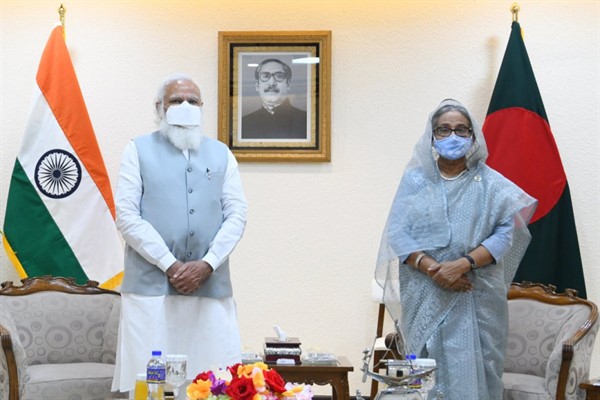Indian Prime Minister Narendra Modi’s two-day visit to Bangladesh last month may not have led to any big-ticket announcements, but it was high on symbolism. Modi was honored as the chief guest during celebrations for the 50th anniversary of Bangladesh’s independence on March 26, as well as the birth centenary celebrations of the country’s founder, Sheikh Mujibur Rahman. Both Modi and his Bangladeshi counterpart, Sheikh Hasina, Rahman’s daughter, used the visit as an opportunity to commemorate India’s role in supporting Bangladesh’s war of liberation from Pakistan in 1971 and highlight the deep cultural and historical linkages between the two countries. The fact that it was Modi’s first foreign visit since the beginning of the COVID-19 pandemic underlined the importance of bilateral ties.
Modi’s visit came amid good momentum in the overall India-Bangladesh relationship. In a virtual summit in December, Modi and Hasina had committed to further strengthen economic and people-to-people ties, as well as security cooperation. In the past few months, new rail and road links have been opened; a unit of the Bangladeshi army participated in India’s Republic Day parade in January for the first time; and Bangladesh became one of the earliest recipients of COVID-19 vaccines manufactured in India.
Indeed, relations between the two neighbors have remained remarkably strong since Hasina came to power in 2008. She has invested significant political capital in revitalizing the relationship with India, which had significantly deteriorated under her predecessor, Khaleda Zia. Modi has also stepped up engagement with Bangladesh driven largely by his government’s desire to counterbalance China’s growing security and economic footprint there. New Delhi and Dhaka now enjoy a broad-based partnership spanning multiple areas of cooperation, as made evident by the lengthy joint statement they issued following Modi’s visit.

